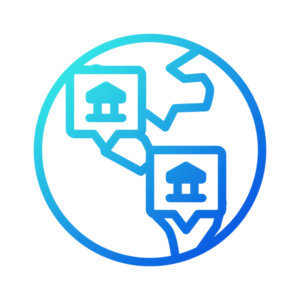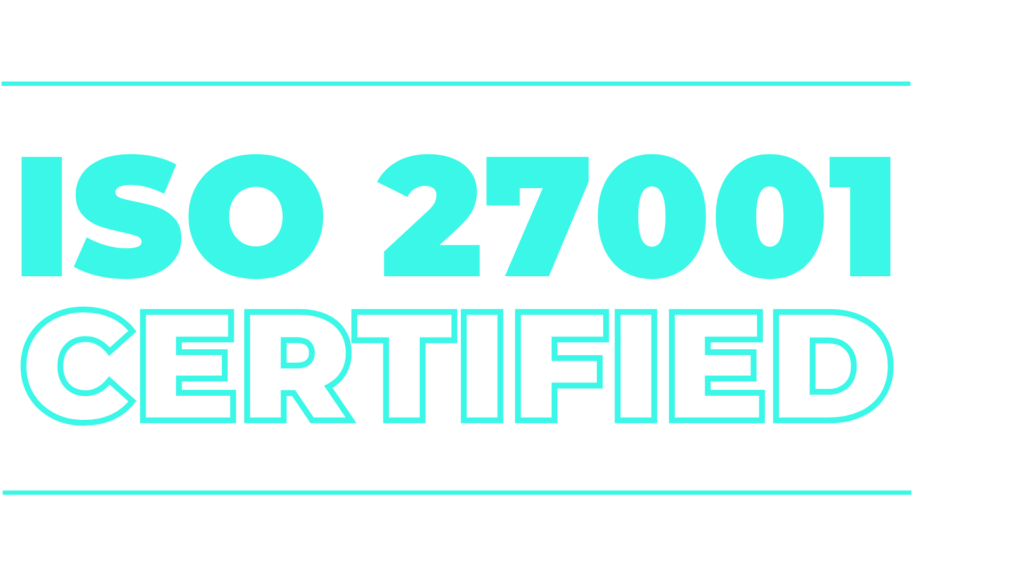Working remotely has flourished since the onset of COVID-19, with an increasing number of companies embracing the flexibility of remote teams. This approach ranges from hybrid models, where employees split their time between home and the office, to fully remote setups. Companies have their reasons for choosing one path over the other. However, the general consensus is that if your work is primarily laptop-based, you should have the freedom to work from wherever you are most comfortable and productive.
Previously, the privilege of working from home was often reserved for long-term employees with compelling reasons to work remotely for a day or two each week. Another scenario for remote work was to prevent the spread of illness, allowing employees who felt they might be coming down with something like the flu to work from home. Outside of these exceptions, remote work was seldom an option.

While the idea of working remotely as you travel, enjoying the benefits of earning an income and saving money in countries with lower living costs may seem idyllic, the reality is that remote work isn’t suitable for everyone or every budget.
The demand for hotspots has skyrocketed, driving up prices, partly due to the influx of individuals seeking a lower cost of living than in their home countries. Cities like Barcelona, Madrid, and Valencia are becoming increasingly expensive due to Americans and Northern Europeans who desire the amenities of large cities along with a superior work-life balance offered by the local culture, cuisine, and climate. Bali has become a hub for Britons, Australians, and Americans, while Thailand attracts Russians, Israelis, and a mix of Britons and Germans, all in search of a more affordable and preferable lifestyle.
Despite the apparent advantages of working remotely while travelling, such as flexibility and the chance to experience new environments, there are several important drawbacks to consider.
Navigating Time Zone
- Challenges of Varied Time Zones: The complexity of working across time zones lies in coordinating meetings and collaborations with colleagues or clients. This often requires adapting your work schedule to unusual hours to match the working times of your team or clients.
- Advantages of Clear Responsibilities and Scheduling Flexibility: When your duties are precisely outlined, providing a clear path for task execution without needing input from teammates, and you possess the ability to organise calls and meetings at convenient times that require little to no scheduling adjustments from participants, you’re well-positioned to navigate these challenges effectively. This setup not only enhances personal productivity but also facilitates smoother collaboration across time zones.
Overcoming Connectivity Hurdles
- Challenges of Unreliable Internet: The essence of remote work hinges on dependable internet connectivity, which may be compromised in remote or underdeveloped regions, impacting your efficiency and ability to adhere to deadlines.
- Solutions Through Innovative Internet Access and Strategic Work Locations: The introduction of the Starlink project has significantly broadened the availability of reliable internet across the globe. The presence of this service in many cafes enhances their attractiveness to those in need of continuous online access. Furthermore, ensuring a strong mobile connection is attainable with the appropriate data plan, offering the flexibility to augment your plan as required. While opting to work from cafes in remote areas could introduce obstacles for bandwidth-heavy tasks like video calls, including possible background noise, selecting co-working spaces for such calls can mitigate these issues. These environments generally provide quieter, more controlled settings with better internet reliability, promoting smoother and more professional communications.
Balancing Exploration and Productivity
- Challenges of Distractions and Disrupted Routines: The allure of travel brings with it distractions and the potential disruption of your established work routine. Finding a workspace that is both quiet and conducive to productivity can prove challenging in unfamiliar environments, and the draw towards leisure and exploration can further diminish work output.
- Crafting a Personalised Routine Amidst Novelty and Time Differences: Embarking on work from a country that sparks your curiosity and excitement, especially when the local time zone diverges significantly (by more than 3 or 4 hours) from that of your team, underscores the importance of crafting and maintaining a consistent routine. Such a routine is vital for nurturing both your mental well-being and your professional efficacy. Given the uniqueness of each individual, it’s imperative to identify a work routine that aligns with your personal rhythms and to commit to it steadfastly. This dedicated approach not only facilitates expectation management but also fortifies collaborative efforts with team members and clients across various time zones, ensuring a seamless integration of work and wanderlust.
Navigating Work-Life Balance on the Go
- Challenges of Blurring Work and Leisure Boundaries: While embracing the nomadic lifestyle, distinguishing between work hours and personal time becomes a formidable task. This blur can lead to either overcommitment to work or insufficient engagement, underscoring the need for effective time and schedule management.
- Strategies for Maintaining Balance and Well-being: Committing to your standard work schedule, be it Monday through Friday or another arrangement agreed upon with your team, is essential while travelling for lengthy periods. Keeping weekends exclusively for yourself not only allows for necessary downtime but also presents an opportunity for relocation without disrupting work. Moreover, incorporating physical activities into your daily routine is pivotal for both your health and productivity. Practices such as yoga, callisthenics, running, or jogging can significantly contribute to your well-being and are manageable on an individual basis. If you find yourself stationary for a few weeks, consider joining a local studio or gym. Many popular destinations for digital nomads offer flexible memberships, including daily, weekly, or monthly options, or passes for multiple visits that can be used over a set period, ensuring you maintain both physical health and work-life balance.
Addressing Cultural and Legal Complexities
- Navigating Legal Restrictions and Cultural Variances: When selecting a destination for remote work, it’s important to be cognizant of potential legal and cultural challenges. Legal considerations, such as visa limitations and tax implications, can significantly affect your ability to work remotely from a new country. Similarly, cultural differences might influence your daily habits and professional interactions, presenting unique challenges to adapt to.
- Adapting to New Environments and Legal Preparations: Embrace the discomfort that may come with cultural adjustments, whether it’s adapting to local customs like eating with your hands, navigating restroom facilities, or seeking directions in a place where your language is not widely spoken. Prior to your arrival, thoroughly research the visa options available for your destination. While some countries offer a Visa On Arrival (VOA), exploring the possibility of obtaining a visa that permits a longer stay can provide more stability and flexibility for your work and travel plans. This proactive approach ensures you remain compliant with local laws while also allowing you to immerse and adapt to the cultural nuances of your new surroundings.
Mitigating Isolation in Remote Work
- Challenges of Isolation and Disconnection: The remote work model, particularly when combined with travel, can often lead to a sense of isolation and a feeling of being disconnected from your team or organisation. Such feelings can hinder effective communication, collaboration, and your overall sense of belonging within the team.
- Strategies for Maintaining Connection and Morale: To counteract the effects of isolation, fostering casual conversations and maintaining personal connections with colleagues are more vital than ever. Establishing a recurring 30-minute meeting every Monday to discuss weekend activities or creating a dedicated Slack channel for informal chats can significantly enhance team cohesion. These interactions shouldn’t be viewed as mere diversions but as critical components of a healthy work environment, almost as important as task completion. Cultivating a sense of unity and mutual support not only boosts productivity and job satisfaction but also helps in keeping the dreariness of isolation at bay. Ensuring that you feel connected and valued by your peers is a crucial aspect of remote working, making the experience more fulfilling and mitigating the sense of merely completing tasks in isolation.
Enhancing Security in Remote Work Settings
- Increased Vulnerability to Cybersecurity Threats: The shift to remote work, especially when it involves using public Wi-Fi networks, heightens the exposure to cybersecurity risks. Ensuring the protection of sensitive data becomes a paramount concern, necessitating more stringent security measures.
- Mitigating Risks with Strategic Internet Use and Starlink Access: To safeguard against potential cyber threats, it is advisable to avoid public internet connections unless you are in a reputable establishment. The advent of the Starlink project has greatly improved the availability of reliable internet globally, with many cafes now providing this secure service. Additionally, a robust mobile internet connection, achievable through the right data plan, offers a secure alternative and the convenience of on-demand top-ups. Working from remote locations poses its own set of challenges, such as unreliable video call quality and the possibility of power outages, particularly outside of urban centres. Therefore, when security and reliability are priorities, opting for trusted internet sources and considering the stability of your work environment are essential strategies.
- VPN Use and Disk Encryption: While working remotely, especially when you find yourself 10,000 km away from your team, the use of a VPN (Virtual Private Network) becomes a critical component of your digital security strategy. It’s important to acknowledge that utilising a VPN can indeed reduce your Internet speed, a consequence of the encryption process and the rerouting of data through secure servers. Despite this, the trade-off for enhanced security is often deemed worthwhile, as a VPN encrypts your Internet connection to secure it from eavesdroppers, cybercriminals, and other potential threats. Alongside the use of a VPN, encrypting your hard disks is equally crucial. This step ensures that all data stored on your device remains inaccessible to unauthorised individuals, further safeguarding sensitive information in the event of physical theft or loss. This comprehensive security measure, however, sparks a debate within the remote work community: Should the use of a VPN and disk encryption be enforced at all times, regardless of the impact on performance? This question opens up a wider conversation about balancing the need for security with the necessity for efficient communication and data transfer in a global team dynamic.
For further information on the topic, check out our tips on cybersecurity:
Addressing Health and Insurance While Traveling
- Navigating Health Risks and Insurance Needs: Travelling introduces a variety of health risks, with the accessibility and quality of healthcare varying significantly by location. It’s crucial to secure comprehensive health insurance that provides coverage internationally. Equally important is ensuring adequate rest and self-care to maintain your health over extended travel periods.
- Practical Health Tips for the Nomadic Lifestyle: Even with thorough health insurance, be prepared for common travel-related issues such as digestive upset, sleeping in less comfortable beds, and disruptions to your sleep cycle due to changes in daylight hours. Carrying a backpack for long periods can also strain your lower back, highlighting the importance of physical strength and conditioning. Incorporating regular physical activity or sports into your routine is essential for overall well-being and can help mitigate some of these issues. To further ease these challenges, indulge in regular self-care practices such as massages, which can be both affordable and highly beneficial, especially in regions like Southeast Asia where such services are plentiful and economical. Consider travelling light to ease the physical burden and, for ergonomic support during work, invest in a portable keyboard, mouse, and laptop stand. These tools not only enhance comfort but also prevent strain on your neck and back, proving to be practical investments for your health and productivity on the road.
Managing Expenses as a Digital Nomad
- The Reality of Rising Costs: Embracing the digital nomad lifestyle, while offering the allure of flexibility and freedom, often comes with its own set of financial challenges. The cost of frequent travel, including accommodations, coworking spaces, and day-to-day expenses, can accumulate, potentially surpassing the expenses of a more stationary lifestyle.
- Budgeting for the Nomadic Lifestyle: As remote work grows increasingly popular, especially in destinations favoured by digital nomads, living expenses in these areas have surged. It’s important to approach this lifestyle with a realistic budget in mind, prioritising essentials such as comfortable and secure lodging. The cost of living can be surprisingly high, even in countries traditionally considered affordable. For example, the price of local dishes like pad Thai in Thailand or a cappuccino in popular nomad hubs can be significantly higher than expected, reflecting a shift towards European pricing levels, particularly for Western cuisine, which often comes at a premium price for lesser quality. These elevated costs are most noticeable in destinations that cater to western tastes and conveniences, offering amenities such as high-quality gyms, yoga studios, and attractive locales. Effective budget management, with allowances for both necessities and the occasional indulgence, is key to navigating the financial aspects of the digital nomad experience without compromising on comfort and quality of life.
Navigating Career Growth While Remote
- Challenges to Professional Development: The remote work model, particularly for those who travel, introduces challenges to professional growth. The lack of physical presence in the workplace can hinder access to in-person training sessions, networking opportunities, and the day-to-day visibility that often contributes to career advancement.
- Strategies for Sustaining Career Progression: Proactively communicating with your manager, boss, or employer is crucial to overcome these obstacles. It’s important to have open discussions about defining a career path or maintaining your current position, focusing on performance rather than the need to prove oneself constantly. Emphasise your commitment to continuing to deliver high-quality work as you have been. Establishing clear objectives and seeking out virtual learning and networking opportunities can also help in maintaining your professional development trajectory, ensuring that your career continues to grow, even while you embrace the flexibility of remote work.
As the landscape of work continues to evolve, driven by the forces of globalisation, the journey of integrating remote work with travel underscores a broader shift towards a more flexible and dynamic approach to our careers and lives. The digital nomad lifestyle, emblematic of the freedom, exploration, and connectivity offered by this new era, represents a significant change not just in where we work, but in how we balance professional ambitions with personal well-being. Embracing this lifestyle requires adaptability, proactive planning, and a commitment to personal growth. Moreover, as remote work becomes increasingly mainstream because of globalisation, it’s conceivable that working remotely in 10 years could be more expensive than we can currently imagine, reflecting shifts in cost of living, technology, and global mobility. As we look to the future, the experiences and lessons learned from navigating the challenges and opportunities of remote work while travelling will undoubtedly shape a new paradigm for what it means to work and live in a globally connected world, reminding us to cherish the flexibility and opportunities we have today while preparing for the evolving landscapes of tomorrow.
Author:
















